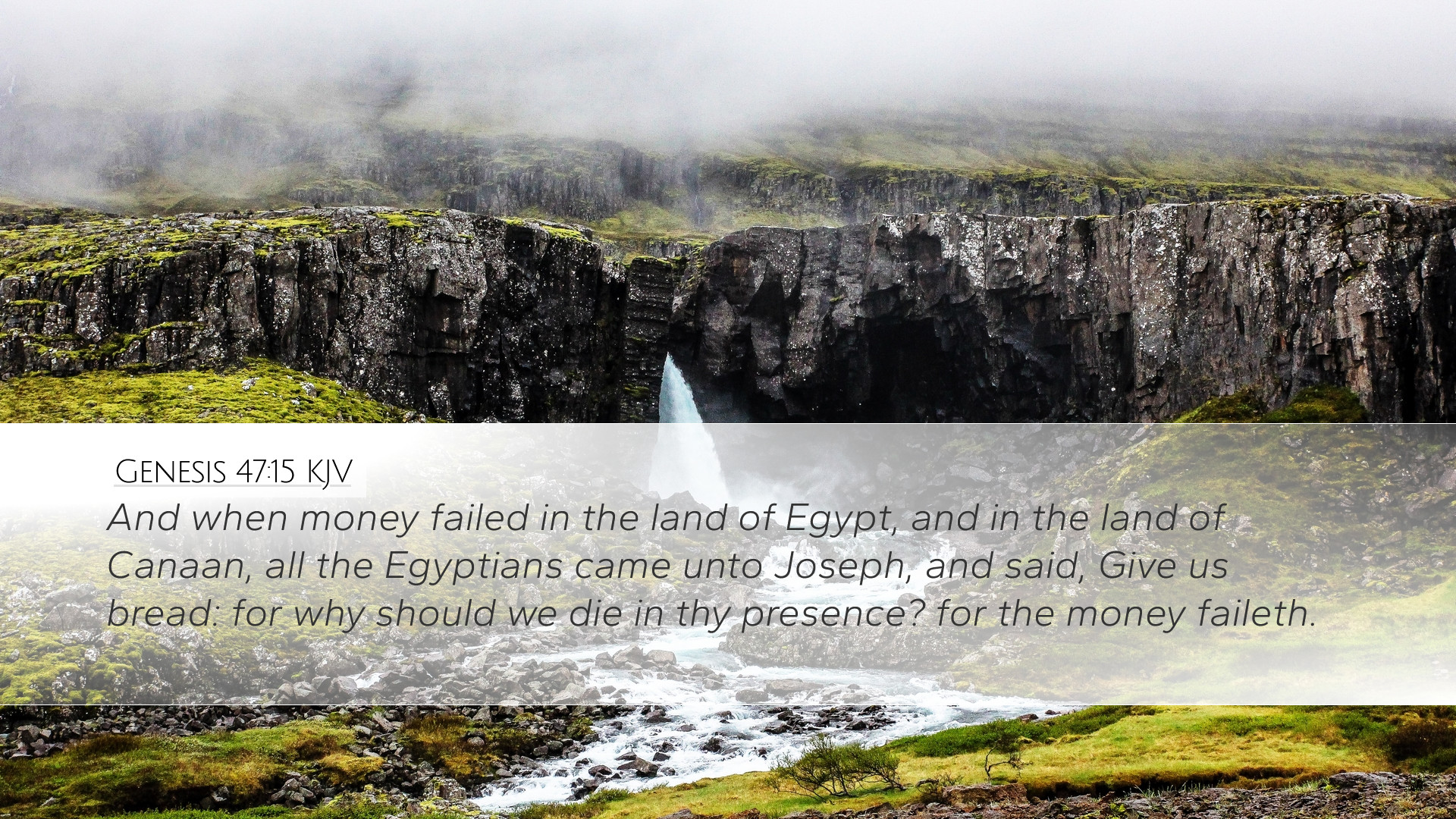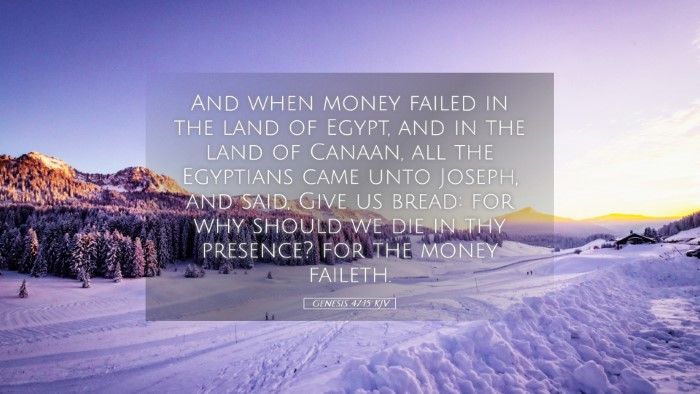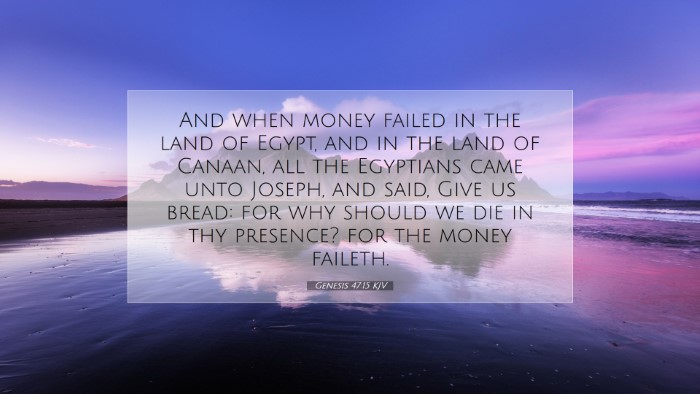Commentary on Genesis 47:15
Introduction
Genesis 47:15 presents a compelling glimpse into the economic and social realities facing the people of Egypt during a time of severe famine. This verse reads: "And when the money failed in the land of Egypt, and in the land of Canaan, all the Egyptians came unto Joseph, and said, Give us bread: for why should we die in thy presence? for the money faileth."
Contextual Background
In the narrative that precedes our focus verse, we find Joseph, sold into slavery by his brothers, now second-in-command in Egypt. His foresight and management during the years of plenty have equipped Egypt to face famine. The arrival of this crisis leads the people to seek sustenance from Joseph, demonstrating his pivotal influence and the unfolding of God's providential plan.
Theological Insights
1. Divine Providence:
This situation underscores the theme of divine providence. The famine serves as a backdrop showcasing God's sovereignty as He prepared Joseph for leadership. Adam Clarke notes that "the hand of God was evident," orchestrating events for the preservation of many lives, particularly those of Jacob's family.
2. Human Dependence:
The cry of the Egyptians, "Give us bread," is a poignant reminder of human frailty and dependence on God and others. When resources are depleted, people often turn to their need for sustenance, a metaphor for humanity's spiritual hunger. Matthew Henry emphasizes this need: "We all must seek our nourishment from that which is able to sustain us."
Economic Implications
The failure of money indicates a total economic collapse, and Joseph's management in these dire circumstances is noteworthy. Albert Barnes highlights that this necessitated a shift in the way resources were distributed; bartering for food became central to survival. The economic principles applied during this time can serve as a study for current crisis management.
- Bartering Systems: The pivot from currency reliance to direct exchange illustrates the fragility of economic systems.
- Government Intervention: Joseph's role as a steward who organized the food supply can be interpreted as a model for government intervention in times of crisis.
Social Dynamics
The interaction portrayed in this verse reflects the desperation among the populace. The phrase "for why should we die in thy presence" reveals a deep acknowledgment of their plight and their fatal dependency on Joseph. Clarke notes that "the request was not merely for bread but for life itself." This aspect resonates deeply with pastoral care and the Church's role in addressing not only the spiritual but also the physical needs of the community.
This moment also illustrates how crises can lead to shifts in power dynamics. While Joseph holds authority, the suffering of people can either engender dependence or provoke rebellion. Careful pastoral attention is advised in times of community distress.
Application for Today
1. Responding to Need:
Today's church is faced with similar calls for aid. The physical and spiritual hunger of communities compels leaders to act with wisdom and compassion. Pastors and church leaders are encouraged to model Joseph's readiness to engage with the needs around them.
2. Wisdom in Crisis:
Joseph’s foresight in preparing for famine exemplifies the need for strategic planning grounded in prayer and dependence on God. As Ravenscroft suggests in his commentary, any leadership must consider economic and social challenges with an eye on eternal truths.
3. Spiritual Application:
Finally, the verse invites a deeper reflection upon our own spiritual hunger. Just as the Egyptians turned to Joseph, we are reminded of our need to seek sustenance from Christ, the Bread of Life. This spiritual parallel encourages believers to continuously seek fulfillment and sustenance from God's word.
Conclusion
Genesis 47:15 reveals key lessons on dependency, divine providence, and community response during distress. As we study this text, let us embrace the wisdom it holds for our present circumstances, acknowledging the sovereign hand of God in our lives and the lives of those around us.


